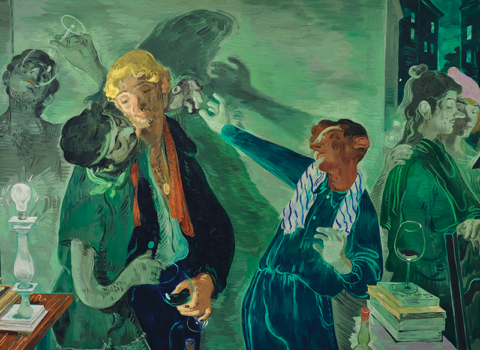Men in Dark Times
No other twentieth-century political philosopher dominated Trump-era discourse like Hannah Arendt. In the mainstream and on the fringe, writers quoted Arendt with abandon, signaling again and again to their baffled readers that she was the thinker best equipped to help us understand Trump’s strange ascent and imminent destruction of democracy. Amid the endless cavalcade of sloppy think pieces, Arendt’s ideas lacked crucial context. “Men in Dark Times,” Rebecca Panovka’s essay in the August issue of Harper’s Magazine, argues that these articles obscured “the way his lies operated, and what they were: not totalitarian world-building so much as boardroom bullshit.”
No essayist has historicized Trump more succinctly than Panovka. This week, she joins Harper’s web editor Violet Lucca to help us understand the great distortion of Arendt. Panovka contends that, though Arendt was not known as the most scrupulous with the facts, twenty-first-century readers should pay close attention to her idiosyncratic word choices and the particular political ethos of her time before making sweeping claims about her relevance today. Of course we should mine great thinkers’ work for insights, Panovka says, but we should also remember what Arendt learned a hard lesson when one of her early mentors, Martin Heidegger, turned to Nazism: the haphazard application of philosophy to politics is always a risky business.



































































































